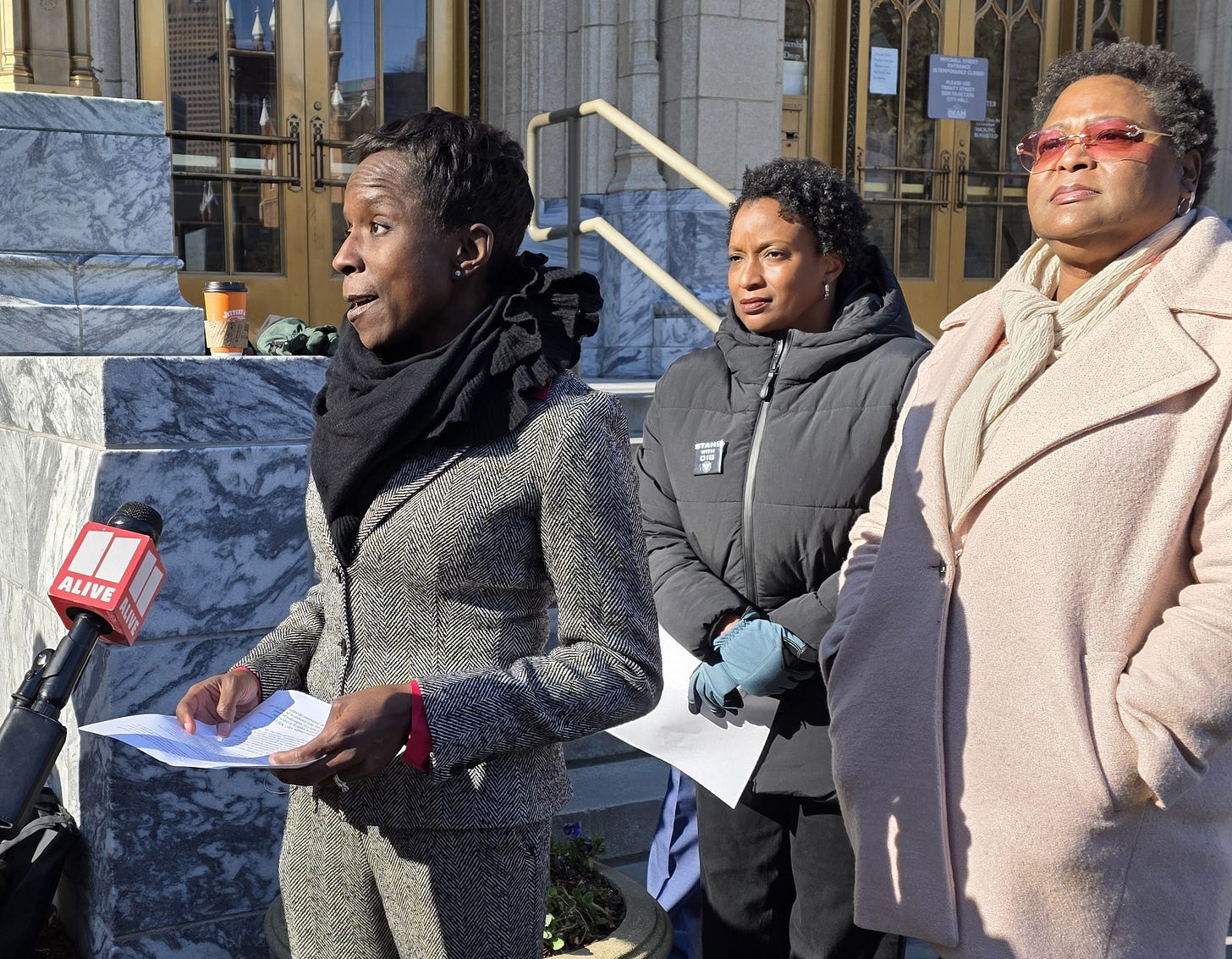If Any FBI Agents Still Have A Job ...
... then they should be expecting a call any day now. Atlanta's inspector general may have quit her job, but the cases are still out there.
When someone calls an outdoor press conference in sub-30-degree weather on three-hours notice, it’s an easy guess that terrible things are afoot because if it’s to announce anything less than momentous news, you only get to do that once.
As it happens, the resignation of Atlanta’s inspector general is big news.
I’ve s…
Keep reading with a 7-day free trial
Subscribe to The Atlanta Objective with George Chidi to keep reading this post and get 7 days of free access to the full post archives.


